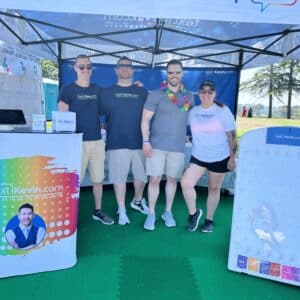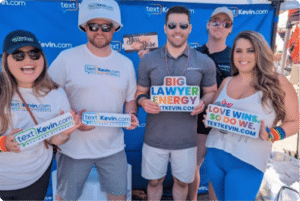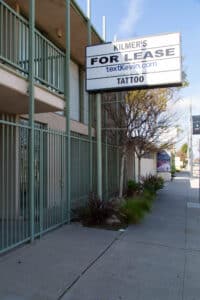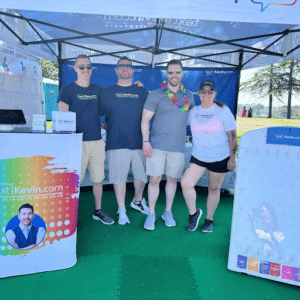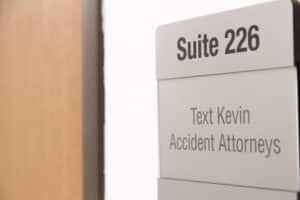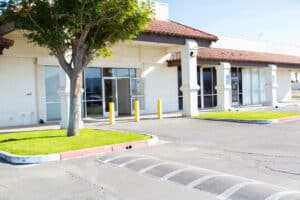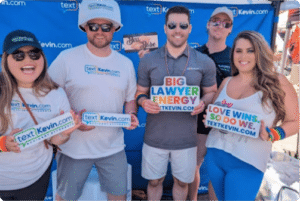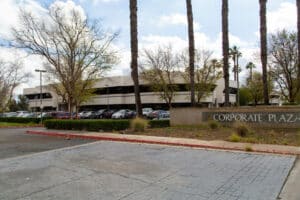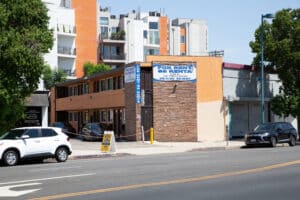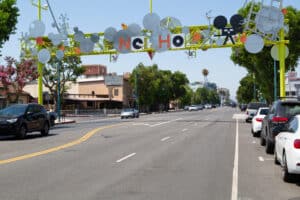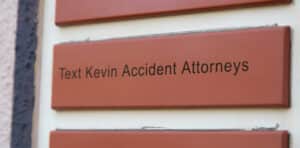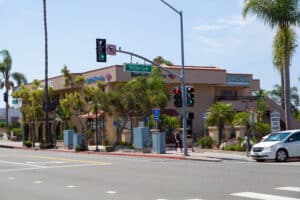California Vehicle Code Section 14601.5 VC prohibits operating a motor vehicle with a revoked or suspended license if the revocation or suspension was triggered by operating a motor vehicle with blood alcohol concentration (BAC) levels that exceeded the legal limit or refusing to submit to chemical BAC testing. Failure to adhere to these regulations could result in criminal charges and civil liability if the driver who hit you was in violation of CVC 14601.5.
Motorists are prohibited from operating a motor vehicle with a suspended or revoked license. However, under California Vehicle Code 14601.5 a VC: Driving on a suspended or revoked license caused by refusal or specified blood alcohol level, drivers who operate a vehicle while knowing their driver’s license was suspended or revoked due to implied consent violations or DUI may face additional criminal charges. However, it is not only the criminal penalties the defendant needs to be worried about.
If you were critically injured in a motor vehicle accident caused by a driver who had a suspended or revoked license, you have the right to demand compensation for your damages. With help from a strategic California car accident lawyer from Text Kevin Accident Attorneys, you can pursue every opportunity for financial relief. When the driver that hit you had a suspended or revoked license due to chemical testing refusal or operating with elevated BAC levels, this evidence could prove invaluable in your personal injury lawsuit against them. To find out more about the value of your lawsuit and what to expect from the car accident claim, contact our legal team to request a free consultation today.
What California Vehicle Code 14601.5(a) States
According to Vehicle Code 14601.5(a) VC: Driving on a Suspended or Revoked License Caused by Refusal or Specified Blood Alcohol Level, criminal charges may apply when a motorist is in violation of the statute. It reads as follows:
“14601.5. (a) A person shall not drive a motor vehicle at any time when that person’s driving privilege is suspended or revoked pursuant to Section 13353, 13353.1, or 13353.2 and that person has knowledge of the suspension or revocation.
(b) Except in full compliance with the restriction, a person shall not drive a motor vehicle at any time when that person’s driving privilege is restricted pursuant to Section 13353.7 or 13353.8 and that person has knowledge of the restriction.
(c) Knowledge of suspension, revocation, or restriction of the driving privilege shall be conclusively presumed if notice has been given by the department to the person pursuant to Section 13106. The presumption established by this subdivision is a presumption affecting the burden of proof.
(d) A person convicted of a violation of this section is punishable, as follows:
(1) Upon a first conviction, by imprisonment in the county jail for not more than six months or by a fine of not less than three hundred dollars ($300) or more than one thousand dollars ($1,000), or by both that fine and imprisonment.
(2) If the offense occurred within five years of a prior offense that resulted in a conviction for a violation of this section or Section 14601, 14601.1, 14601.2, or 14601.3, by imprisonment in the county jail for not less than 10 days or more than one year, and by a fine of not less than five hundred dollars ($500) or more than two thousand dollars ($2,000).
(e) In imposing the minimum fine required by subdivision (d), the court shall take into consideration the defendant’s ability to pay the fine and may, in the interest of justice, and for reasons stated in the record, reduce the amount of that minimum fine to less than the amount otherwise imposed.
(f) This section does not prohibit a person who is participating in, or has completed, an alcohol or drug rehabilitation program from driving a motor vehicle, that is owned or utilized by the person’s employer, during the course of employment on private property that is owned or utilized by the employer, except an offstreet parking facility as defined in subdivision (c) of Section 12500.
(g) When the prosecution agrees to a plea of guilty or nolo contendere to a charge of a violation of this section in satisfaction of, or as a substitute for, an original charge of a violation of Section 14601.2, and the court accepts that plea, except, in the interest of justice, when the court finds it would be inappropriate, the court shall, pursuant to Section 23575, require the person convicted, in addition to other requirements, to install a certified ignition interlock device on a vehicle that the person owns or operates for a period not to exceed three years.
(h) This section also applies to the operation of an off-highway motor vehicle on those lands that the Chappie-Z’berg Off-Highway Motor Vehicle Law of 1971 (Division 16.5 (commencing with Section 38000)) applies as to off-highway motor vehicles, as described in Section 38001.
(i) Upon receipt of the abstract of a conviction under this section, the department shall not reinstate the privilege to operate a motor vehicle until the department receives proof of either the “Verification of Installation” form as described in paragraph (2) of subdivision (g) of Section 13386 or the Judicial Council Form I.D. 100.
(j) If Section 23573 is applicable, then subdivisions (g) and (i) are not applicable.”
When Charges Apply Under Vehicle Code 14601.5 VC
There are several instances under which motorists may face 14601.5 VC violations. For example, if the driver that hit you was previously convicted of drunk driving with a .15% BAC, but was driving to the grocery store when they rear-ended you, they may be guilty under CVC 14601.5.
Similarly, if a driver refused to agree to chemical blood alcohol testing, had their driving privileges suspended or revoked, but continue to drive to work or school every day, they may face criminal charges for driving on a suspended or revoked license caused by refusal or specified blood alcohol level.
For the prosecutor to secure a conviction, they must prove that:
- The defendant had a suspended or revoked driver’s license
- The defendant’s driving privileges were suspended or revoked because they refused to agree to a chemical test or they had a blood alcohol concentration levels that met or exceeded .08%
- The defendant was driving a vehicle with a suspended license
- The driver knew their driver’s license was suspended or revoked
Note
While the prosecutor may have the authority to bring forward charges under CVC 14601.5, it is important to keep in mind that if the state declines to press charges, it will have no bearing on the impact of your personal injury lawsuit. If the district attorney does decide to move forward with criminal charges, we can use the evidence they obtained and the charges against the defendant to support your case against them in civil court.
The Criminal Penalties Could Impact Their Future
In addition to your civil lawsuit and claim against the liable party’s insurance policy, the defendant may also be subject to criminal penalties if VC 14601.5 is charged as a misdemeanor. First time offenders can expect to pay fines up to $1,000 and spend as much as six months in county jail.
Subsequent offenses result in increased jail time and fines not to exceed $2,000. However, defendant’s facing charges under 14601.5 VC may be more likely to be granted informal probation in lieu of jail time.
Tip
Offenses Related to CVC 14601.5(a)
In addition to allegations under 14601.5 VC, there are several other criminal charges that may apply. If the defendant is charged with several criminal offenses, they may be subject to additional penalties and collateral consequences. This will be good news for injury victims who are hoping to bring at-fault parties to justice.
Driving With a Revoked or Suspended License Causing Bodily Injury Under CVC 14601.4
Under California Vehicle Code 14601.4, motorists are prohibited from driving with a suspended or revoked license that causes severe bodily injury to another. If you were involved in a collision with a driver whose license was suspended or revoked, the driver that hit you could be fined up to $1,000 and spend as much as six months in jail if convicted as a first time offender.
However, for second and subsequent offenses that occur within five years of the initial CVC 14601.4 violation, the defendant’s sentence could be increased to as much as one year in county jail and fines not to exceed $2,000.
Driving Under the Influence Under CVC 23152
If the driver that hit you was drunk or under the influence of drugs at the time of the accident, they may be charged under California Vehicle Code 23152(a) VC. Driving under the influence (DUI) means the driver that hit you was impaired and unable to operate a motor vehicle as safely as possible. DUI charges are prosecuted as misdemeanor offenses. If convicted, the defendant may be sentenced to:
- Use of an ignition interlock device (IID)
- Loss of driving privileges
- Fines
- Jail time
- Attendance at DUI school
- Misdemeanor probation
DUI convictions also carry several collateral consequences. The driver who caused your accident may lose their federal student aid, child custody or visitation rights, lose their job, have trouble finding gainful employment, and be subject to SR – 22 insurance requirements which increase the amount the defendant will need to pay in auto insurance premiums.
How Defendants Challenge CVC 14601.5 Violations
Do not expect the defendant to settle your claim or plead guilty to the allegations against them. It is not uncommon for liable parties to do everything in their power to avoid being held accountable for their negligent or wrongful actions. Some potential defenses the defendant may attempt to utilize to secure a favorable outcome include:
- They were not driving at the time of the accident
- They did not know their drivers license was suspended or revoked because they recently moved or the DMV failed to notify them of their license status
- They were falsely accused of driving with a suspended or revoked license by someone who was angry, jealous, or attempting to get revenge on them
Pro Tip
California Vehicle Code 14601.5(a) FAQ
Is 14601.5 priorable?
A prior offense refers to a charge that the criminal court system can use to determine what the penalty should be for a specific crime. For instance, DUI charges in California may be considered a prior offense. When a motorist is being sentenced for a DUI conviction, the court system will consider a 10 year "look back” period to determine whether the defendant has a history of DUIs.
If the defendant is a habitual offender, the charges will not be considered a first time offense. This often results increased penalties. Prosecutors may consider prior convictions under California vehicle code 14601.5 to determine the defendants sentence, making 14601.5 VC a priorable offense.
Can I sue for damages?
Yes, if the driver that hit you had a suspended or revoked license due to implied consent or BAC violations, you may have the right to file a personal injury lawsuit against them, demanding full repayment of your damages.
At trial, you have the right to demand compensation for your loss of income, medical expenses, vehicle repair expenses, emotional distress, pain and suffering, and other economic and non-economic damages. With fault insurance laws under California Insurance Code - INS § 11580.1, if another party is at fault for your accident, regardless of their license status, you can hold them accountable to the full extent of the law.
How long do I have to file a CVC 14601.5 lawsuit?
If you are going to file a lawsuit against the driver that hit you, California Code of Civil Procedure § 335.1 requires you to do so within two years of the accident date unless extenuating circumstances apply. Certain conditions may allow this deadline to temporarily pause. For example, if the driver with a suspended or revoked license caused your minor child’s injuries, the statute of limitations may not begin counting down until they reach the age of 18.
Get Help From California’s Leading Car Accident Attorneys
A violation under California Vehicle Code 14601.5(a), which prohibits motorists from operating a motor vehicle with a suspended or revoked drivers license triggered implied consent violations or with elevated BAC levels, could result in additional criminal penalties. If the driver that hit you is found in violation of CVC 14601.5, the state’s case against them could provide powerful evidence that could be used to prove liability for your damages. With the legal advice of a top-rated California car accident lawyer from Text Kevin Accident Attorneys, you can make them pay.
Fight for the just compensation you are entitled to. Do not let the liable party get away with their negligence. Find out how much you could be awarded if your lawsuit is successful when you contact our legal team to schedule a no-cost, risk-free consultation. When you are ready to take control of your future and demand justice, fill out our secured contact form or call us to take advantage of this opportunity.


























